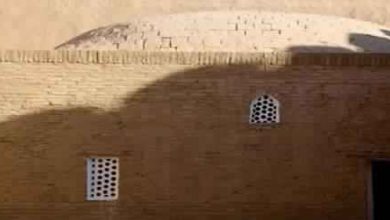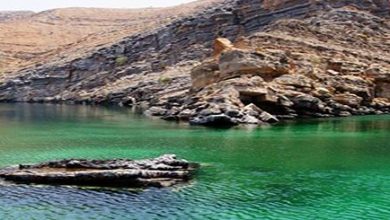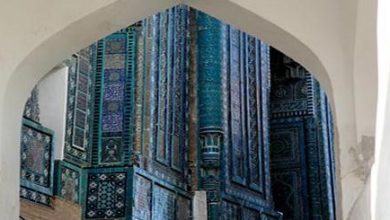ABU BAKR AS-SIDDIQ

THE CALIPHATE RULE
Hence Islam entered a new era. The appointment of Abu Bakr as the first Caliph was already hinted by the Prophet SAW, who, on his illness prior to his death, had appointed Abu Bakr to lead the people in congregational prayer. We will not go into the political details of his appointment, but instead set out his achievements in securing the integrity and unity of the Muslim Ummah during his short rule below.
The First Speech:
The continued humility of Abu Bakr, now the leader of a powerful people, is demonstrated in his inaugural speech:
“I’ve been appointed as ruler over you, though I’m not the best of you. If I did well (to you) then you should support me, and if I did evil (to you) then you should guide me to what is right….
Behold! The weak person amongst you would be considered as strong in my sight until I bring back to him his right (usurped by others). Behold! The strong person among you would be considered as weak in my sight until I take from him the right of others, which he usurped. You should obey me as long as I comply with (the orders and instructions of) Allah and His Messenger. But, if I deviated (from that), then you would have the right not to obey me”.
Those Who Refused to Pay Zakat/The Ridda Wars (War Against Apostates) The beginning of Abu Bakr’s Caliphate rule started with one critical problem. Part of the Muslim community began to refuse to pay zakat (the obligatory charity) after the death of the Prophet SAW. It was a civil rebellion but was fast changing in becoming an armed rebellion. There was also a widespread threat of apostasy, initiated by the hypocrites.
There were 2 opposing views.
Some saw that the people who refused to pay zakat should not be fought so long as they committed nothing more than the refusal to pay the zakat.
The other view, the one which Abu Bakr adopted was that the payment of zakat is a pillar of Islam and the Caliph has no right to allow this rejection. If he did, that would be the beginning of many forms of rebellion on the religion.
In Sahih Muslim Book 1 Hadith 0029: Umar b. Khattab said to Abu Bakr: Why would you fight against the people, when the Messenger of Allah declared: I have been directed to fight against people so long as they do not say: There is no god but Allah, and he who professed it was granted full protection of his property and life on my behalf except for a right? His (other) affairs rest with Allah. Upon this Abu Bakr said: By Allah, I would definitely fight against him who severed prayer from Zakat, for it is the obligation upon the rich. By Allah, I would fight against them even to secure the cord (used for hobbling the feet of a camel) which they used to give to the Messenger of Allah (as zakat) but now they have withheld it. Umar b. Khattab remarked: ByAllah, I found nothing but the fact that Allah had opened the heart of Abu Bakr for (perceiving the justification of) fighting (against those who refused to pay Zakat) and I fully recognized that the (stand of Abu Bakr) was right.
The view held by Abu Bakr showed the certainty of his faith and the depth of his insight as caliph and a caller to Islam to keep away from any innovation. It was a proof of his obedience to Islam.
Compilation of the Qur’an:
During the lifetime of the Prophet SAW, the revelation was a constant process and there was no occasion for compiling the various verses on the form of a book. After his death, the process of revelation ended, and there arose the need to preserve the verses in a physical form. Many of the “Huffaz” were martyred in the battle of Yamanah, and it occurred to Umar that there was a danger that no one could be depended upon as a reliable custodian of the Qur’an.
Hence, he suggested to Abu Bakr that all the revelations of the Qur’an should be collected and compiled into a systematic book. Abu Bakr was initially reluctant for the fear of committing innovation, but Umar eventually convinced him otherwise. It was a laborious process, undertook by Zaid bin Thabit with the help and counsel of various Companions. The final version was scrutinised, amended and approved of by Abu Bakr, who himself was a Hafiz. Thus, Umar and Abu Bakr were instrumental in the preservation of the most holy book that we have on earth today.
The Creation of the Treasury:
A treasury was created and a stipend of food and money were given from the Treasury to the Caliph. Abu Bakr was insistent that the Treasury only give what would suffice for him and his dependents reasonably and fairly. He used to still live frugally and was very careful not to eat anything where there was suspicion and was not extravagant. He was concerned that extravagance would lead to illegal ways of living.
He once said, “Every human body which grew up from an ill-gotten property, would be more entitled to enter the fire of Hell, so I am afraid that a portion of my body might grow up from this unlawful morsel.”
So much so, that before he died he called Aisha RA, his daughter, to look at his wealth and whatever increased in his wealth after being appointed Caliph was to be returned to the Treasury.
Umar cried when he saw what was left of Abu Bakr’s assets after Aisha RA returned the wealth to the Treasury. Abu Bakr’s assets only consisted of a camel, a milking vessel and a garment. A complete change from when he first entered Islam where he was a wealthy man – at the peak of his wealth. Abu Bakr had spent everything he had for Allah.
How He Lived:
Abu Bakr was so concerned of going astray that he would continuously supplicate to Allah: “O Allah, the turner of hearts! Make my heart constantly firm in your religion” and he would say “By Allah, I would not rest assured and feel safe from Allah’s punishment even if one of my feet was in Paradise”. He lived humbly and in humility to Allah.
HIS DEATH
The circumstances of his death are unclear. There are two accounts. One he was poisoned and it took a year for the poison to be effective and the other, from an illness. He died a man, in submission to Allah, in piety to Allah, humble before Allah, in humility to Allah, in service of the Ummah, the first successor to the Messenger of Allah SAW.
The Messenger of Allah SAW talked so much about (the good merits of) Abu Bakr. From among what he said about him, a mention might be made of the following: “There is no one who did a favour to us, but that we gave him a reward for it, except for Abu Bakr, who has done a favour to us, for which Allah would give him reward on the Day of Judgement.”
Acknowledgement Most of the information for this work has been obtained from: “The Successors of the Messenger (Allah’s Blessing and Peace be upon Him)” authored by Khalid Muhammad Khalid (and translated into English by Muhammad Mahdi Al-Sharif)
“The Sealed Nectar”by Shaikh Safiur Rahman Mubarakpuri/Abdul Malik Mujahid
“Men and Women Around the Messenger” by Sa’d Yusuf Abu ‘Aziz




